Op-Ed: Should a Christian Celebrate Halloween?
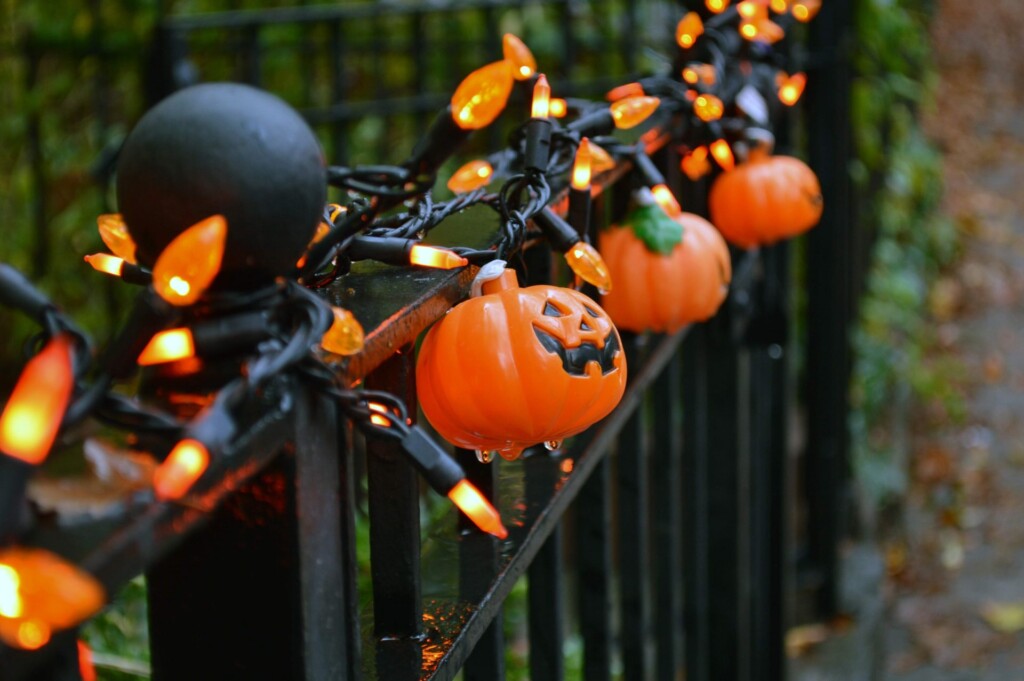
I am writing this for my church. I think it might be helpful for others, and so I will make it available here.
Clearly, certain questions are a matter of adiaphora, and no one should deny the reality that certain ethical questions fall into that category. Adiaphora is a term developed by stoic philosophers and adopted by Christians to describe decisions that are neither inherently moral nor immoral, right or wrong, or necessarily good or bad. As a category or framework to understand ethical conundrums the concept of adiaphora is often helpful.
However, not every ethical question can be answered by categorizing the matter adiaphora. There are also questions with answers that do not echo sentiments of Christian liberty but can rather be clearly categorized as moral or immoral, right or wrong, righteousness or sin. Christians seem all-too-eager today to silence the collective conscience by putting every issue in the pigeon hole of adiaphora, shrugging their shoulders and mumbling something about floating your boat. In reality, even if something is adiaphora – meaning that it is neither explicitly forbidden nor explicitly commanded – it doesn’t necessarily mean that there isn’t a wise or unwise, helpful or unhelpful, healthy or unhealthy decision to be made regarding that ethical decision. In short, even if something is adiaphora, it doesn’t mean you’re off the hook of thinking out the costs and benefits, implications, and consequences of ethical decisions.
Paul references this notion in 1 Corinthians 10:23, “‘All things are lawful,’ but not all things are helpful. ‘All things are lawful,’ but not all things build up.” Clearly for the Apostle, even those things that may not necessarily be wrong, may still be unwise, unhelpful, or unedifying. It would be foolish of the Christian to embrace “all things are lawful” while neglecting his admonition, “but not all things are helpful.”
First, we need to ask if it is sinful for a Christian to celebrate Halloween. Then, we must ask – if it is not sinful – if it is wise, helpful, or edifying to celebrate Halloween.
In order to answer the first question, I need to explain the holiday known as “Halloween.”
HISTORY
First, Halloween is a “holiday” as the term defines it. It was designed as a “holy day.” Known originally as “All Hallows Evening,” it is celebrated the evening prior to “All Hallows Day.” That holiday (also known as “All Saints Day”) originated with the Roman Catholic church (Eastern Orthodox celebrate the holiday as well, but immediately following Pentecost) and is a “Holy Day of Obligation,” which is a day that idolaters are expected to attend Mass. Beginning with Pope Boniface IV (although not systematized until much later).
Roman Catholic historians suspect that the day was chosen to co-opt a pagan holiday known as “Feast of the Lemures,” which the Romans observed to help exorcise evil spirits from their homes, and those evil spirits out and about at night working mischief. This is why Pope Boniface IV consecrated the day on May 13 (the same day as Feast of the Lemures), which was only later changed to the end of October by Pope Gregory III.
After a mixture with pagan tradition (described below), the holiday came to the United States through Anglicans who still observed the Roman Catholic liturgical calendar. However, the holiday did not receive widespread celebration until a large influx of Roman Catholic Irish immigrants came to the United States in the late 19th and early 20th centuries.
THEOLOGICAL ORIGINS
All Saints Day was designed by Papists to celebrate all those who have died and already made it to Heaven. This is in contrast to All Souls Day, held a few days later, which commemorates all those who have died and have not yet made it to Heaven, stuck in purgatory to purge their own sins until they reach perfection. The point of the holiday for Roman Catholics was to pray for the dead.
As Nordic areas became Catholicized, pagan nativist religions slowly merged with Romish traditions, and various familiar aspects of the holiday eve’s celebration came into being. As it was celebrated at the end of Harvest, Gaelic tradition held that it was a “liminal time,” in which the barrier between the “other world” (the supernatural beyond, or afterlife) and this world was exceptionally thin, on account of the transition of seasons. It was during this liminal time that spirits were seen as being especially active, with ghosts, goblins, and demons running about causing mischief. In Ireland, nativist peoples would burn candles for those departed souls meandering about and leave out treats for them to enjoy, in exchange for being left alone. Likewise in Ireland and Britain, festivities would be held to divine the future, give prophecy, and engage in general revelry.
In Ireland, Britain, and Wales, people began to dress in costumes and go from house to house, reciting songs or verses in exchange for food (essentially playing the role of dead spirits). In fact, most of what you’ve heard about the pagan origins of Halloween are remarkably accurate, historically. Trick or treating began as a house-to-house blackmailing for gifts in exchange for protection against vandalism or pranks, “bonfires” really were “bone fires” and jack’o’lanterns really did begin by pumpkins or gords lit with candles to show evil spirits their way.
In every sense of the word, the origins of Halloween are religious in nature, and a perfect mixture between the paganism of Rome and the paganism of nativist religions in northern Europe.
IS HALLOWEEN STILL A RELIGIOUS OBSERVANCE?
Clearly, Halloween is still a religious observance among Papists and it’s still a part of their liturgical calendar. However, one would be hard-pressed to argue that most of those celebrating the holiday in America see it as a religious observance. And yet, there does seem to be a religious zeal for the holiday that is ever-growing and expanding. Modern pagans are increasingly excited about the holiday and spend increasingly amounts of time and money in its observance. There certainly seems to be a correlation between the increased lostness in our culture and the increased fervency displayed in observance of Halloween.
This doesn’t mean, however, that it is an overtly religious observance for most people. Its origins, however, are inarguably religious in nature.
ASSUMING HALLOWEEN IS A RELIGIOUS HOLIDAY, IS IT A SIN TO OBSERVE IT?
There is no doubt that it’s a sin to take part in what is an overtly religious observance of false religion. I would admonish Christians to never step foot into a Roman Catholic church unless it is under protest, to never take part in its blasphemous Mass, and to never engage in syncretistic prayer with members of a false religion. Obviously, Christians mustn’t take part in any exercise that explicitly or implicitly worships a false god or is an intrinsic part of false religion. Christians need not take part – indeed, must not take part – in any religious service of worship of Roman Catholicism, Eastern Orthodoxy, Islam, Hinduism, the Church of Satan, or any other false religion.
However, the assumption that Halloween is a religious observance for all related festivities, is just that – an assumption. The fact is, religious observances often fade into purely cultural – and secular – reflections of those celebrations. We have seen this with our own celebration of Christmas. Christmas began as a Papist construct (and arguably nativist pagan before that), was co-opted by Protestants and evangelicals who divorced it from virtually all Papist strings except for the name itself (Christ-Mass), and it has since been co-opted by secularists with no religious sympathies and who observe it with all the zeal and consumerist fervor as the most religious of its celebrators.
In the same way that Christ-Mass could be uniquely Roman Catholic, uniquely Protestant, historically pagan, or contemporarily secular, Halloween likewise ranges from religious to irreligious in nature, even though it is of religious origin.
Please note: Although Christmas and Halloween are both traditions born in the Roman Catholic church, there is a difference. There is nothing inherently flawed in celebrating the birth of Jesus. The notion of praying for the dead, on the other hand, is at its onset theologically wrong.
To answer the question in the above heading as clearly as I’m able, if Halloween is treated as a religious holiday belonging to a false religion (as it is to some), it is clearly a sin to observe it.
IF HALLOWEEN IS A CULTURAL, RATHER THAN RELIGIOUS HOLIDAY, IS IT A SIN TO OBSERVE IT?
There is a hint in Scripture that First Century Christians had to deal with this very topic. What if pagans are having a holiday, and giving away free food? Can we eat the free food?
Therefore, as to the eating of food offered to idols, we know that “an idol has no real existence,” and that “there is no God but one.” For although there may be so-called gods in heaven or on earth—as indeed there are many “gods” and many “lords”— yet for us there is one God, the Father, from whom are all things and for whom we exist, and one Lord, Jesus Christ, through whom are all things and through whom we exist. However, not all possess this knowledge. But some, through former association with idols, eat food as really offered to an idol, and their conscience, being weak, is defiled. Food will not commend us to God. We are no worse off if we do not eat, and no better off if we do. But take care that this right of yours does not somehow become a stumbling block to the weak. For if anyone sees you who have knowledge eating in an idol’s temple, will he not be encouraged, if his conscience is weak, to eat food offered to idols? And so by your knowledge this weak person is destroyed, the brother for whom Christ died. Thus, sinning against your brothers and wounding their conscience when it is weak, you sin against Christ. Therefore, if food makes my brother stumble, I will never eat meat, lest I make my brother stumble (1 Corinthians 8).
What the Apostle is writing to the church in Corinth is that it may very well be acceptable to eat food sacrificed to false gods. It is free food, after all. If there is a giant pagan festival and they’re worshiping their dumb, little deities it may be acceptable to come along afterward and eat some of the barbeque that is being passed out to the crowd. However, they were told to abstain from eating such if they have someone onlooking who is drawn toward such idolatry and it may weaken their conscience and put them in a compromising position to embrace that which what they shouldn’t.
To give the plainest answer from the Scripture, it does not seem to be a sin to take part in a free candy giveaway. However, if someone was saved out of a life of demonic revelry and worldliness, perhaps it is best that they and the Christians around them abstain from benefiting from the candy-giving generosity of the pagan culture. In this sense, taking part in the candy-giving aspect of Halloween does not seem to be at face value a religious exercise, being sufficiently divorced from its religious origins. It is doubtfully not a sin to give or receive candy as a part of that cultural celebration.
OTHER CONSIDERATIONS
It would only be foolish to pretend as though there is no connection between the pagan religious roots of Halloween and its cultural observance, in the same way, it would be foolish to pretend the two can’t be sufficiently divorced in the mind of the participant.
Regardless of whether or not the culture understands why it’s been a tradition to dress up as ghouls and goblins and evil things (historically, to imitate and ward off scary spirits), this is an element that remains. It is my belief that Christians must not dress in any way that is imitating evil things – even if they are fictional evil things. Vampires and monsters may not exist, but these are but fictional representations of a very real and demonic evil that exists in our age. There is nothing that I see in the Holy Bible that would lead me to believe it is acceptable for Christians to engage in the revelry that includes dressing up as the devil. Such is a lostness that shouldn’t even be named among God’s people.
For those of you dressing up your children as evil things, shame on you.
For those of you decorating your home to make it look demonic or frightening, this does not accord with sound doctrine or a holy lifestyle imitating Jesus.
Furthermore, there is a stark difference between being in a candy line and going “all in” for the pagan cultural celebration of Halloween. The First Century Christian, in the context of Paul’s letter to the Corinthians, was permitted to take some grilled meat from the open buffet. However, they would not have considered actually taking part in the pagan worship service in which the meat was sacrificed. At the most, Christians should be on the periphery of such events, and not organizing, leading, or decorating for such events. We may not turn down free candy, in the same way, that Christians in the First Century wouldn’t necessarily turn down free meat, but we shouldn’t be the ones doing the sacrificing.
Finally, I would ask you to look at this situation through the lens of priority. Do you have a zeal for Halloween – a holiday that at best we should only take part reluctantly and cautiously as dwellers in a pagan land – that is greater than your zeal for Resurrection Sunday? If you are Reformed, shouldn’t your zeal for Reformation Day (which is the same day as Halloween) exceed that which you have for Halloween? Are you making a candy-centered holiday more important than a Christ-centered holiday?
As for my family, I’ve made the decision (only in the last several years) that I don’t want to touch any unclean thing (2 Corinthians 6:17), and I consider Halloween to be unclean. However, we do hand out candy for the few trick-or-treaters who knock on our door (along with tracts) and we let people give candy to our kids without protest at stores or other places they happen to be in public. For my Christian brothers and sisters to dress their child up like a non-demonic object and knock on doors to receive candy, I choose not to judge them in the matter and place it within the category of adiaphora.
But, for those who treat Halloween like a great and noble event worthy of expense, planning, and revelry, I stand aback as the weaker brother as it deeply offends my conscience. I pray that it doesn’t deeply offend God, who has called us unto holy separation.
Editor’s Note. This article was originally published on Pulpit & Pen in 2017

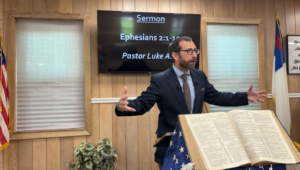
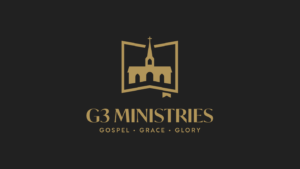
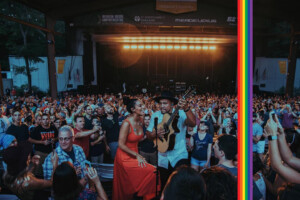

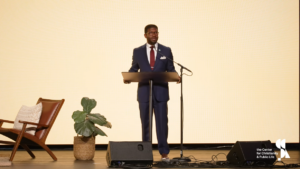
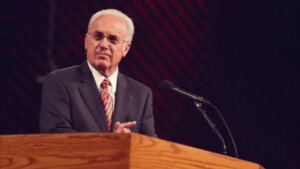
Nah. Just a bunch of fearful bloviating here. Check out the American Vision article for some real discernment: https://americanvision.org/9630/halloweens-improbable-origin-and-meaning-for-christians/
I appreciate alternative you so I will be reading that article as well. But, Oh please. Bloviating? I’d like to know how theirs fear in this article? Also given bloviating is in relation to a volume of words, sure it’s a semi lengthy article but for good reasons as it doesn’t historical documentation. Anything that details history it is a good thing and history in here is accurate. But it’s always funny when Christians or anyone disagrees rather than actually giving a valid critique they just lob stupid and asinine insults. Its quite even handed. Also pray tell how would you justify dressing up as a Freddy Krueger Michael Meyer? I’m not saying you are I’m just saying there are some valid points in this article. And they happen to be the Viewpoint that I came to as well through reading the Bible. If we are to be holy and God is Holy and we are not imitate the world, then yeah we shouldn’t be imitating evil things. And that was the primary point of this article. Now I’ve gone trick-or-treating and I’ve given out candy oh, but I don’t feel okay participating in a haunted house. I actually was an actor in a haunted house for a couple years but I just couldn’t do it again especially knowing that I terrified some children so much they basically ran out of the building screaming. I’d like to know how that’s a good thing? I still feel bad about that and convicted of that. So I think there are some very valid points in this article and it isn’t fear-mongering or merely bloviating because bloviating implies words without substance.
Single Mom Makes $89,844/Yr in Her Spare Time on The Computer Without I Selling Anything. you can bring from $5000-$8000 of extra income every month. working at home for 4 hours a day, and earning could be even bigger.
The potential with this is endless… http://Www.NETCash1.Com
Great article. Excellent and on point.
Ive always read Halloween came from the Celtic festival of Lughnasa, a pagan harvest festival that also involved a belief that the veil between this world and the spirit world was thinned or opened for this one day each year in pre-Christian Celtic countries. I’m no fan of many doctrines of the RCC but my understanding of this is that as they spread north and west from Rome they sort of co-opted many pagan festivals and rather than banning them turned them into something church related. Lughnasa was replaced by All Saints Day- a day to honor the dead instead of trying to contact them or being afraid of encountering them in the dark. One of the ways they stamped out pagan beliefs was to juvenilize them, turn them into something little kids do.
So ironic that juvenilization is now most obvious in the evangelical churches, modern cultural Christianity being something set up and oriented for little kids. Our music, preaching, dress, worship, shallow doctrines, even our once most sacred rites-baptism and Lord’s Supper- are mostly geared for little kids, crackers and juice being the classic kindergarten snacks. (Don’t forget Easter 2020 when every church had Easter communion on zoom and all were invited to join in. Social media was awash with all the exuberant displays of home communion elements- cookies and milk, toast and orange juice, pop tarts and apple juice, coffee and donuts, and this zinger from a mega church-“Pastor Mike is having Goldfish and Pepsi”) All disguised as “family activities.” Evangelicals believe ourselves to be closest to the New Testament church, but if you look at the New Testament you don’t see any “family activities.”
Anyway, I appreciate the article. we always have lots of little spooks in my neighborhood and I enjoy seeing them. Happy Halloween y’all!
Halloween is like any other holiday – what are you celebrating? If ghosts and ghouls, obviously you have an issue as a confessing Christ follower. Same with Easter and Christmas – are you celebrating pagan festivities or Christ? I’m sick of Christians lecturing me about enjoying Christmas.
Yeah wasn’t that the point of the article? Christmas is not the same as Halloween because Halloween is directly about evil things and Christmas is about celebrating the birth of Christ.
Single Mom Makes $89,844/Yr in Her Spare Time on The Computer Without D Selling Anything. you can bring from $5000-$8000 of extra income every month. working at home for 4 hours a day, and earning could be even bigger.
The potential with this is endless… http://Www.works51.Com
Single Mom Makes $89,844/Yr in Her Spare Time on The Computer Without Selling Anything. you can bring from $5000-$8000 of extra income every month. working at home for 4 hours a day, and earning could be even bigger.
The potential with this is endless…..https://www.workapp2.com